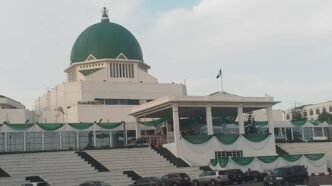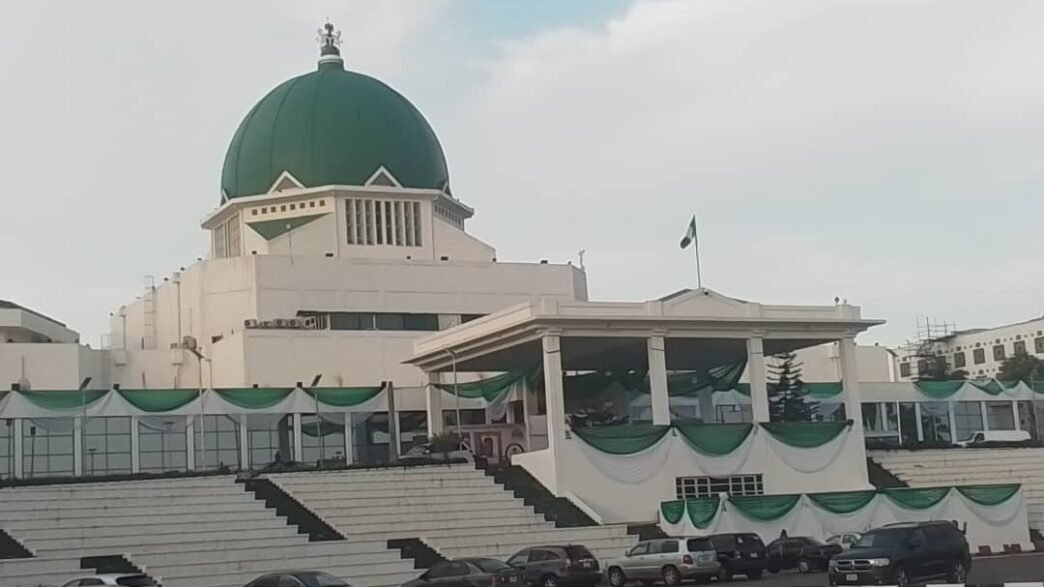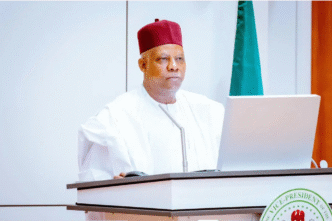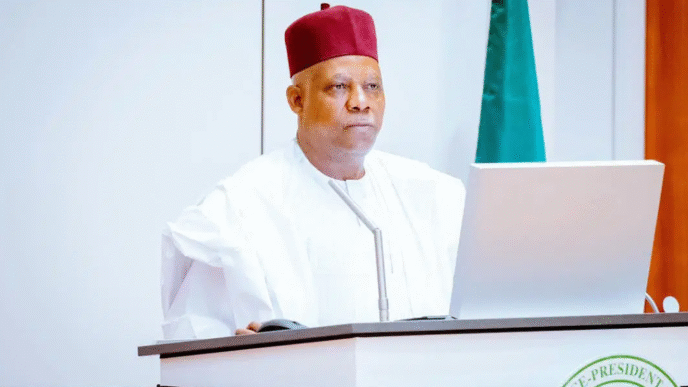Abuja, Nigeria – October 2025 – The management of Nigeria’s National Assembly has issued a stern warning to aggrieved parliamentary workers planning to embark on industrial action and picket the legislature as lawmakers resume plenary this Tuesday. The caution highlights growing tensions between the institution’s leadership and members of the Parliamentary Staff Association of Nigeria (PASAN), who have raised longstanding welfare and constitutional grievances.
The warning came through a circular released on Sunday, signed by the Secretary of Human Resources and Staff Development, Essien Eyo Essien, on behalf of the Clerk to the National Assembly, Kamoru Ogunlana. The statement urged staff to ignore calls for strike or protests and threatened severe disciplinary measures against those who defy management’s directive.
The Warning Circular
According to the circular, management views the planned action by some PASAN members as disruptive and unlawful. Essien insisted that staff safety and security within the National Assembly complex were guaranteed, urging workers to continue with their official duties without fear of intimidation.
“In light of recent developments, the Management hereby instructs all Staff to ignore any calls for industrial action, including ‘work-to-rule’ or unlawful picketing. Your safety and security within the National Assembly Complex are assured, and we urge you to proceed with your official duties without any fear or intimidation,” the circular read.
The management emphasized that union membership is voluntary and that any dissatisfied staff member may withdraw their participation in PASAN according to its rules. It also stressed that within seven months of assuming office, the current leadership had initiated administrative reforms aimed at improving efficiency and boosting staff morale.
The Workers’ Grievances
The warning was triggered by a petition from a group of workers identifying themselves as “Concerned PASAN Members.” The petition, dated October 3, 2025, and addressed to the Clerk of the National Assembly, detailed allegations of harassment, intimidation, and disregard for union processes.
The letter, signed by M.C. Odo, Yusuf Mohammed Abiola, and Chinenye Peace Nda, accused management of querying and threatening staff with suspension simply for demanding transparency and adherence to PASAN’s constitution. The petition cited provisions in the union’s 2015 constitution requiring executives to prepare annual budgets, present audited accounts to congress, and comply with statutory financial obligations.
The workers alleged that management’s recognition of certain union executives earlier removed by Congress undermined internal democracy. They described the move as “a violation of due process and the union’s internal democracy,” arguing that such interference erodes confidence in the leadership structure.
Unresolved Welfare Issues
Beyond disputes over union governance, the petition highlighted critical welfare demands that workers say remain neglected. These include:
- Correction of salary shortfalls
- Remittance of statutory deductions, including tax, pension, and housing fund contributions
- Full implementation of the Consolidated Legislative Salary Structure (CONLESS)
- Payment of outstanding allowances such as rent subsidy, leave grant, hazard allowance, and medical support
- Implementation of the 40 percent consolidated peculiar allowance approved in 2023 for federal workers
- Provision of official vehicles for directorate-level staff
- Supply of staff buses to ease transportation challenges for junior staff
- Comprehensive training templates for staff capacity development
- Implementation of the National Assembly Service Pension Board (Establishment) Act, 2023
- Immediate application of the new minimum wage and consequential adjustments
The petitioners argued that failure to address these welfare issues continues to demoralize staff, erode productivity, and foster distrust between management and workers.
Rising Tension Ahead of Plenary
The timing of the dispute is particularly sensitive, as lawmakers are set to resume plenary after a recess. The planned industrial action by staff threatens to disrupt legislative business at a time when critical national issues are expected to dominate parliamentary debates.
Observers warn that the handling of this crisis could have far-reaching consequences. If the grievances are left unresolved, there is the risk of disruption to the legislative process at the heart of Nigeria’s democracy. However, a conciliatory approach could restore confidence and stability among the workforce.
Management’s Position
While acknowledging staff concerns, the National Assembly management insists that it is committed to transparency, accountability, and staff welfare. The circular highlighted reforms introduced in recent months, such as administrative restructuring, digitalisation of processes, and initiatives aimed at improving workplace efficiency.
“Finally, the management remains committed to transparency, accountability, and the overall well-being of staff,” the circular stated, calling on workers to trust the process.
By framing the protest as unlawful, the management appears determined to enforce discipline while also maintaining smooth legislative proceedings. The warning of “severe disciplinary action” against defiant staff underscores management’s resolve to prevent disruptions.
Workers Demand Accountability
The “Concerned PASAN Members,” however, insist that their demands are legitimate and rooted in the union’s constitution and Nigeria’s labour laws. They argue that without transparency in financial management and fair implementation of welfare provisions, staff morale will continue to decline.
Their petition called for audited accounts to be presented to the congress, in line with constitutional requirements, and criticized management’s alleged interference in union elections and executive recognition. The workers framed their agitation as a struggle for accountability, fairness, and internal democracy.
Broader Context of Labour Unrest
The brewing crisis in the National Assembly mirrors a broader pattern of labour disputes across Nigeria’s public sector. From universities to hospitals, civil servants have repeatedly raised concerns about unpaid allowances, poor working conditions, and lack of transparency in leadership.
The Parliamentary Staff Association of Nigeria has a history of industrial action, including strikes that have previously disrupted legislative sessions. Analysts warn that failure to address these concerns could once again paralyze operations in the National Assembly, sending the wrong signal about institutional stability.
What’s at Stake
If the planned protest goes ahead, plenary sessions could be disrupted, with lawmakers unable to access chambers or legislative staff refusing to provide support services. Such a scenario could delay debates on key national issues, including the 2026 budget planning process, constitutional amendments, and legislative oversight of executive policies.
The situation also raises questions about labour relations in Nigeria’s highest lawmaking body. Observers note the irony of lawmakers deliberating on labour rights and national policies while their own staff struggle with unresolved welfare issues and allegations of intimidation.
Calls for Dialogue
Labour analysts and civil society groups are urging both sides to embrace dialogue. They argue that confrontation and threats of disciplinary measures may deepen mistrust, while transparent engagement could lead to compromise.
“There is an urgent need for constructive dialogue between management and staff. The grievances raised touch on constitutional obligations and welfare entitlements, which cannot simply be dismissed as unlawful agitation,” one labour expert said in Abuja.
Looking Ahead
As Tuesday’s plenary approaches, uncertainty lingers over whether the planned protest will materialize and how management will enforce its warning. With both sides holding firm, the coming days will determine whether Nigeria’s National Assembly resumes business smoothly or faces disruption at the very heart of its legislative complex.
What remains clear is that the grievances raised by staff go beyond union politics to issues of transparency, welfare, and accountability. How management responds will not only affect immediate legislative operations but could also shape labour relations within the National Assembly for years to come.
Conclusion
The National Assembly management’s stern warning to parliamentary staff underscores the seriousness of the looming industrial action. By urging staff to ignore calls for protest and threatening disciplinary measures, management seeks to preserve order as lawmakers resume plenary.
Yet, the concerns raised by workers—ranging from union transparency to unresolved welfare issues—reflect deeper challenges that require careful negotiation. The outcome of this standoff could set a precedent for how Nigeria’s top legislative institution manages its internal labour disputes.
For now, all eyes are on the National Assembly complex in Abuja, where Tuesday’s plenary could either proceed smoothly or become a flashpoint for labour unrest and political drama.














